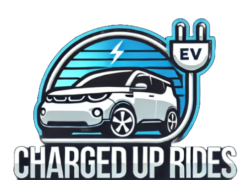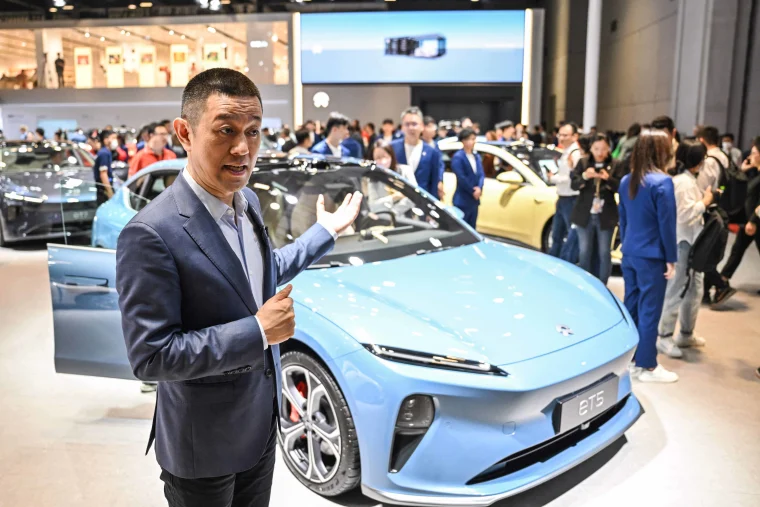Introduction
The electric vehicle landscape has dramatically shifted in recent years, with Chinese manufacturers emerging as powerful global players. What was once dominated by Tesla and traditional automakers has transformed into a dynamic market where Chinese innovation and manufacturing prowess are setting new standards. In 2023, Chinese manufacturers accounted for over 60% of global EV sales, marking a significant milestone in automotive history.
1. BYD (Build Your Dreams)
BYD has emerged as the world’s largest EV manufacturer, surpassing Tesla in global sales. This remarkable achievement comes from a company that started making mobile phone batteries in 1995.
Key Models:
- BYD Seal: A direct Tesla Model 3 competitor, starting at $31,000
- BYD Han: Premium sedan with 500+ mile range
- BYD Tang: Luxury SUV with advanced features
Technology Innovations:
- Blade Battery Technology: Revolutionary safety and energy density
- CTB (Cell-to-Body) Integration: Improved structural efficiency
- DM-i Super Hybrid System: Advanced hybrid technology
Warren Buffett’s Berkshire Hathaway owns 7.7% of BYD, providing significant validation of the company’s potential. BYD’s vertical integration, from battery production to final assembly, gives it a unique cost advantage.
2. NIO
NIO positions itself as a premium brand, often called the “Tesla of China.” Their innovative approach extends beyond vehicles to lifestyle and customer experience.
Signature Models:
- ET7: Flagship sedan with 620-mile range
- ES8: Premium SUV with family focus
- ES6: Compact SUV with performance focus
Unique Features:
- Battery Swap Stations: 3-minute battery replacement
- NIO Houses: Exclusive owner clubhouses
- NOMI AI Assistant: Advanced in-car AI system
NIO’s battery-as-a-service (BaaS) model reduces initial purchase costs and addresses battery degradation concerns. Their European expansion is well underway, with Norway serving as their first international market.
3. XPENG
XPENG focuses on tech-savvy younger buyers, offering advanced features at competitive prices.
Popular Models:
- P7: Sleek sedan with 440-mile range
- G9: Flagship SUV with 800V charging
- P5: Affordable smart sedan
Technology Highlights:
- XPILOT 4.0: Advanced driver assistance
- Navigation Guided Pilot: Highway autonomous driving
- 800V High-Voltage Platform: Ultra-fast charging
Their commitment to software development sets them apart, with regular over-the-air updates enhancing vehicle capabilities.
4. Li Auto
Li Auto takes a unique approach with extended-range electric vehicles (EREVs), addressing range anxiety while maintaining efficiency.
Key Models:
- L7: Mid-size SUV with premium features
- L8: Full-size luxury SUV
- L9: Premium six-seater SUV
Market Differentiation:
- Range-extended powertrains
- Family-focused design
- Advanced safety features
- Premium interior materials
Their EREV strategy has proved successful in China, particularly appealing to families requiring longer range capability.
5. Great Wall Motors (ORA)
Great Wall Motors’ ORA brand focuses on affordable, style-conscious EVs with a distinct design language.
Notable Models:
- ORA Good Cat: Retro-styled compact EV
- ORA Funky Cat: Modern urban commuter
- ORA Ballet Cat: VW Beetle-inspired design
Design Philosophy:
- Retro-futuristic styling
- European-inspired quality
- Urban mobility focus
Comparative Analysis
Price Points:
- Entry Level: $25,000-35,000 (ORA, BYD)
- Mid-Range: $35,000-50,000 (XPENG, Li Auto)
- Premium: $50,000+ (NIO)
Technology Leadership:
- Battery Technology: BYD leads with Blade Battery
- Autonomous Driving: XPENG and NIO compete closely
- Charging Speed: XPENG G9 leads with 800V system
- User Interface: NIO’s NOMI sets the standard
Market Share (2023):
- BYD: 35% of Chinese EV market
- NIO: 3% (premium segment)
- XPENG: 2.5%
- Li Auto: 2.8%
- Great Wall Motors: 2%
Future Outlook
The future looks promising for Chinese EV brands, with several key developments:
Expansion Plans:
- European market entry acceleration
- North American market exploration
- Southeast Asian market development
Upcoming Technologies:
- Solid-state batteries
- Advanced autonomous driving
- V2G (Vehicle-to-Grid) capabilities
- Improved charging speeds
Buying Guide
Best For Different Needs:
- Luxury Buyers: NIO
- Tech Enthusiasts: XPENG
- Value Seekers: BYD
- Families: Li Auto
- Urban Commuters: ORA
Considerations:
- Service network availability
- Charging infrastructure
- Local regulations
- Warranty coverage
- Resale value
Conclusion
Chinese EV brands have evolved from followers to leaders in the global electric vehicle market. Their combination of innovative technology, competitive pricing, and rapid development pace makes them increasingly attractive options for buyers worldwide.
Key Takeaways:
- Chinese EVs offer excellent value for money
- Technology often matches or exceeds Western competitors
- Build quality has improved significantly
- Service network expansion is crucial for global success
- Market disruption will continue as these brands expand
For potential buyers, Chinese EVs represent a compelling option, particularly in markets with established service networks. While some concerns about long-term reliability and service availability remain, the value proposition is increasingly difficult to ignore.
As these brands continue their global expansion, they’re likely to reshape the automotive industry fundamentally. Whether you’re considering a purchase now or in the future, Chinese EV brands deserve serious consideration in your decision-making process.

